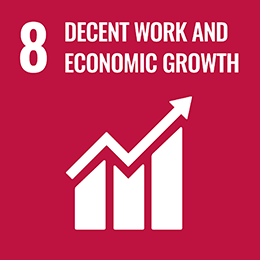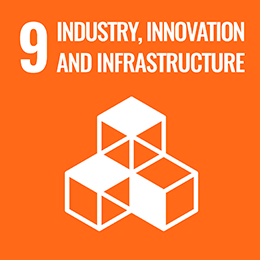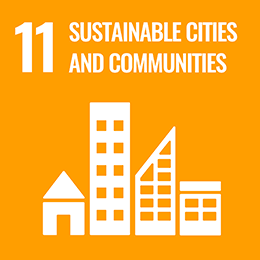Re-working Work

Share this article
Generation Gig
“We often miss opportunity because it's dressed in overalls and looks like work” ― Thomas Edison
Ring lights! Who knew that this was a thing? A mitigation strategy for the pallor of holiday-deprived employees forced to share the kitchen table during Zoom meetings, while juggling home-schooling, meal planning and the daily ‘me time’ walk. These are the lucky ones.
By the end of April 2020, 1.6 billion workers in the informal economy, almost half the global workforce, stood in immediate danger of having their livelihoods destroyed. And we were worried about robots!
The Fourth Industrial Revolution is going to see one billion jobs, almost one-third of all jobs worldwide, transformed by technology by 2030, according to OECD estimates. And not everyone is going to make it.
The World Economic Forum’s 2015 Future of Jobs report predicted a net loss of more than five million jobs globally between 2015–2020 due to the ‘smart’ automation of traditional manufacturing and industrial practices.
In the WEF's 2020 Future of Jobs report, 85 million jobs may be displaced by a shift in the division of labour between humans and machines by 2025, but 97 million new roles may emerge that are more adapted to the new division of labour between humans, machines and algorithms.
Adaptability and reskilling will be key.
For many, any job is the future. By mid-2021, unemployment in the UK alone is likely to reach 2.6 million and could potentially include workers in city-centre related jobs such as transportation, food service, cleaning and maintenance, retail and personal care industries, if urban living does not ‘return to normal’.
KPMG analysis suggests that the loss of commuter flow in the UK could range from over a tenth to under a third of pre-Covid footfall.
Parenthetically, shirt makers Thomas Pink and TM Lewin have already thrown in the towel in anticipation of a fall in daily commuter numbers and a paradigm shift in the ‘office look’; and not necessarily in an aesthetic direction.
It seems that the pandemic has simply accelerated the move towards the smart tech-enabled, flexible-timing and remote location future of work. If this was a fire-drill-style road test of the working landscape of tomorrow, what have we learnt?
The most obvious lesson is how many people can effectively work from home. And productively, too! The second lesson is how varied telephony services are, even in urban centres.
How permanent these home office solutions will be is still unclear, and something that will ultimately impact the future shape of cities. For now, Google and Facebook are allowing their employees to work from home at least until this summer, while Twitter’s workforce can stay at home indefinitely.
The white-collar worker’s future is likely to be a hybrid model that balances the structure and sociability of time in an office, with the independence and flexibility of working from home. WeWork’s IPO might have been a joke but Adam Neumann did bring the Silicon Valley-inspired creative, innovation hub concept into city centres all over the world.
“Almost all companies will maintain physical space, but it will be there for three main purposes: collaboration, creativity and culture, and there will be less space devoted to standard desk space for tasks that could be done remotely,” according to Andy Pyle, head of real estate at KPMG in the UK.
Whatever the new normal is for office life, virtual meetings on Zoom, Google Hangouts and Microsoft Teams are here to stay. “We’ve seen two years’ worth of digital transformation in two months. From remote teamwork and learning, to sales and customer service, to critical cloud infrastructure and security,” said Microsoft’s CEO Satya Nadella.
With this new work freedom comes dangers. With a recession looming, once the real economy is weaned off central bank and government largesse, CEOs are likely to jump at any chance to cut costs.
One is obvious. Businesses spend more than $300 billion on corporate travel each year, with 20% of this on airfare alone, according to PwC. Less obvious, but in plain sight is the big city salary premium. If you’ve moved to a greener, cheaper, location from which you work remotely, your employer will 'take that into account' in assessing total compensation.
And then there’s the government. They know that higher income workers have saved more than average through 2020 and they think that some of this money is ear-marked for them. Think ‘war bonds’ or ‘solidarity taxes’.
The next generation of workers will have opportunities in industries and roles not-yet even dreamed of (and risks, too).
One industry whose operating model has been most affected by Covid is that of higher education. It is hard not to wonder what the average college student made of 2020, but it is unlikely that they feel that they got the ‘experience’ that they were promised.
At the same time employers are looking with an increasingly jaundiced eye at the ‘wokeness’ of some of our leading places of learning and seeing the hard-skills gap of recent graduates. It’s hard to ‘challenge’ a new employee who’s been trained to avoid ‘uncomfortable’ or ‘perceived-as-threatening’ situations.
Platform logic is yet to hit education in a meaningful way, but it will. If places of learning cannot guarantee intellectual excellence as well as a cross-disciplinary, social experience, they will struggle to compete.
The delivery of eLearning, which is part of the $7 trillion global education market, will not only allow costs to be kept low as the reskilling of the workforce takes place, but also more people will be able to access a university level education.
Degrees don’t need to take three or four years, or cost the earth, and can be fitted around work or other life priorities.
At the same time, platforms that offer employers access to pre-screened pools of young talent will fill the apprenticeship gap that many countries are starting to recognise.
In France, companies such as Staff Me have provided young medical students as part of the vaccination task force and Xavier Niel's École 42's highly competitive crash coding course is highly sought after even by graduates of the most prestigious ‘traditional’ schools.
Work is about both ‘hard’ and ‘soft’ skills. Flexibility and adaptability are human traits that robots are nowhere close to mastering and critical thinking, empathy, speculative-enquiry and compassion will be highly sought-after by the employer of tomorrow.
“What did you do during the pandemic?” is likely to become a common interview question because lockdown has also unleashed the creative and entrepreneurial spirit.
From home cooked food delivery to online sewing classes and virtual wine-tastings, side hustles and forgotten dreams, all have had time to become businesses. According to analysis of Companies House data by the Centre for Entrepreneurs there were 77,574 new company formations in the UK in June 2020 compared to 52,779 in June 2019, a 47% growth.
Irrespective of whether or not these businesses survive, another lesson for the future of work is that innovation and creativity are two human traits that will not be replaced quickly.
Unsurprisingly, the more successful businesses were the ones that could be developed online as even the most luddite embraced e-commerce. The decentralised platform-based gig economy was touted as the business structure of the future with freelancers all competing for work.
Spawned by the jazz club musicians of the early 1900s, the notion of the gig economy is not new, but now established as a powerful trend, whose gross volume is projected to reach $455.2 billion by 2023.
The advantage of the peer-to-peer economy is that it offers employers the flexibility to ‘hire’ skills as and when required, without employee overheads. But a key societal concern is how vulnerable contractors are when it comes to guaranteed wages, sick pay and health care.
Freelancing is not for everyone, but for the long-term viability of the gig economy, workers need to enjoy some measure of protection. The fight will not be easy as Uber and Lyft have shown when they threatened recently to close their California operations if they were forced to classify their drivers as employees; a battle they have so far won.
But setting a better precedent for the gig economy, Just Eat plans to offer its UK workers benefits including hourly wages, sick and holiday pay and pension contributions, and in the US, the Securities and Exchange Commission has proposed a pilot programme to allow tech companies to pay gig workers up to 15% of their annual compensation in equity rather than cash.
Choosing the right educational path (and mix of learning and skills); the right industry (because some are changing beyond recognition and some face extinction); and adapting to a world of work that is both remote and real, is a challenge, no doubt.
But, perversely, the multi-tasking, digital dexterity and speed thinking that is second nature to the future work force probably makes them better equipped for the work place that awaits them than their (scouting/gap year/summer camp) parents were.
Photo: © Niki Natarajan
Artist: David Speed 2020
Article for information only. All content is created and published by CdR Capital SA. The views and opinions expressed in this article are those of the author(s). Information on this website is only directed at professional, institutional or qualified investors and is not suitable for retail investors. None of the material contained on this website is intended to constitute an offer to sell, or an invitation or solicitation of an offer to buy any product or service. Nothing in this website, or article, should be construed as investment, tax, legal or other advice.
Related articles
Influence of Gen Z
Welcome to a virtual world where chats disappear, anything you want to watch or listen to is free and ‘truth’ lives in a search engine. If it is that important, then there’s an app.

Peer to Peer Economy
“This on demand, or so-called 'gig economy', is creating exciting economies and unleashing innovation. But it is also raising hard questions about workplace protections and what a good job will look like in the future” ― Hillary Clinton

Rise of the Robots
“I believe that at the end of the century the use of words and general educated opinion will have altered so much that one will be able to speak of machines thinking without expecting to be contradicted" ― Alan Turing, Computing Machinery and Intelligence





